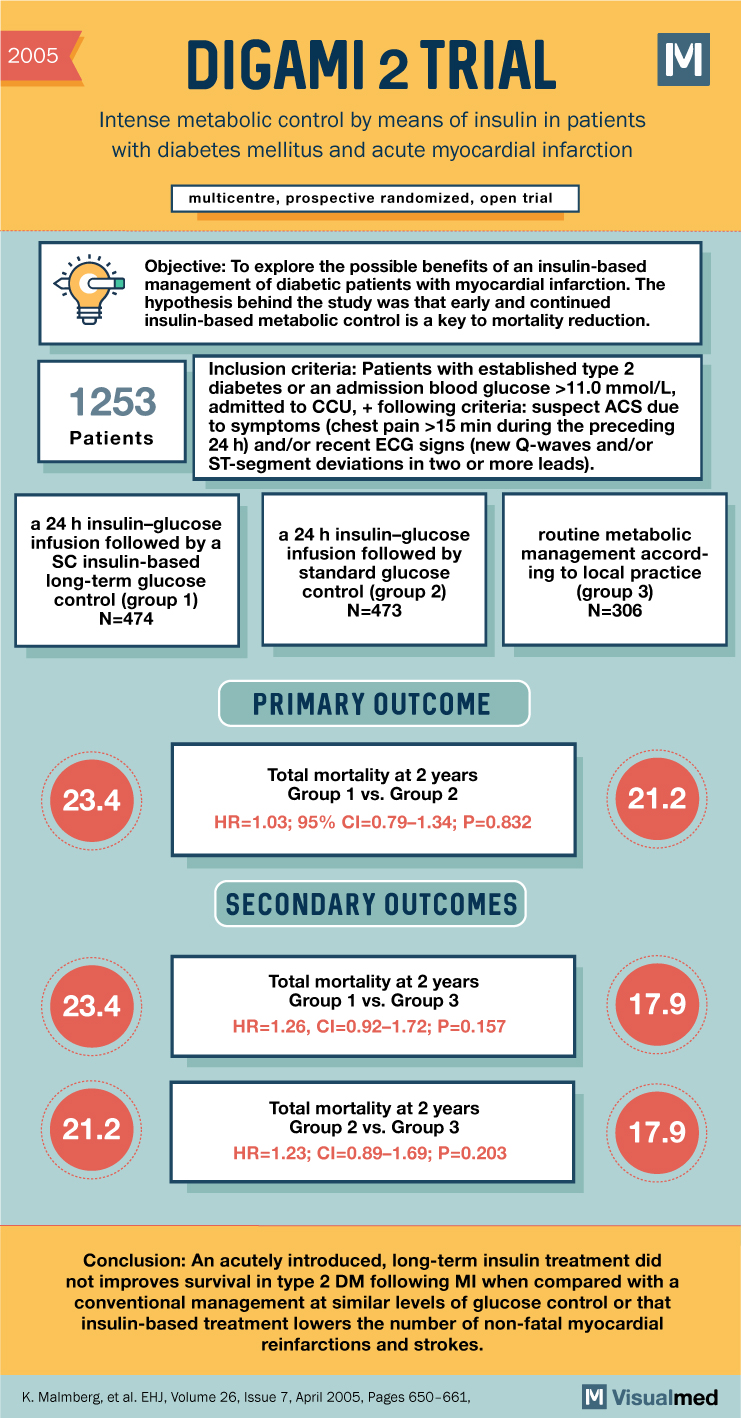
DIGAMI 2 Trial Summary
Introduction:
The DIGAMI 2 trial aimed to evaluate the effect of insulin-based glucose control in type 2 diabetic patients following myocardial infarction compared to conventional management at similar levels of glucose control. The study investigated three treatment strategies: group 1 received acute insulin-glucose infusion followed by insulin-based long-term glucose control, group 2 received insulin-glucose infusion followed by standard glucose control, and group 3 received routine metabolic management according to local practice.
Methods:
The trial enrolled 1253 patients with type 2 diabetes and suspected acute myocardial infarction. Key features of the study design included:
- Treatment Groups: Participants were randomly assigned to one of the three treatment groups: group 1 (n=474), group 2 (n=473), or group 3 (n=306).
- Primary Endpoint: The primary endpoint was all-cause mortality between groups 1 and 2.
- Secondary Objective: The secondary objective was to compare total mortality between groups 2 and 3.
- Tertiary Objectives: Tertiary objectives included evaluating morbidity differences among the three treatment groups.
Results:
The median study duration was 2.1 years. At randomization, HbA1c levels were similar in all three groups (around 7.2-7.3%), and blood glucose levels were around 12.5-12.9 mmol/L. Blood glucose levels were significantly reduced after 24 hours in all groups, with greater reductions observed in groups 1 and 2 receiving insulin-glucose infusion compared to group 3. Long-term glucose-lowering treatment differed between groups, with group 1 having a higher proportion of patients receiving multidose insulin.
By the end of the follow-up period, HbA1c levels did not differ significantly among the three groups (approximately 6.8%). Target fasting blood glucose levels were not reached in group 1. The overall study mortality (combined for groups 1-3) was 18.4%. However, there were no significant differences in mortality between groups 1 and 2 or between groups 2 and 3. Additionally, there were no significant differences in non-fatal reinfarctions and strokes among the three groups.
Conclusion:
The DIGAMI 2 trial did not find evidence to support the notion that acutely introduced, long-term insulin treatment improves survival in type 2 diabetic patients following myocardial infarction compared to conventional management at similar levels of glucose control. The trial also did not demonstrate a reduction in non-fatal myocardial reinfarctions and strokes with insulin-based treatment. However, the study confirmed that glucose levels are a strong independent predictor of long-term mortality in this patient population, underscoring the importance of glucose control in their management.